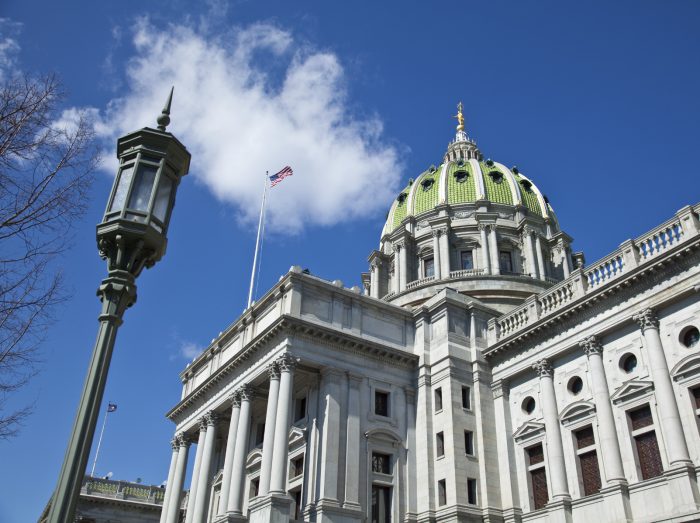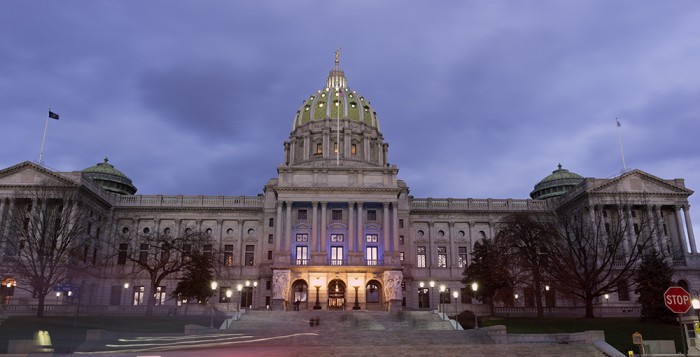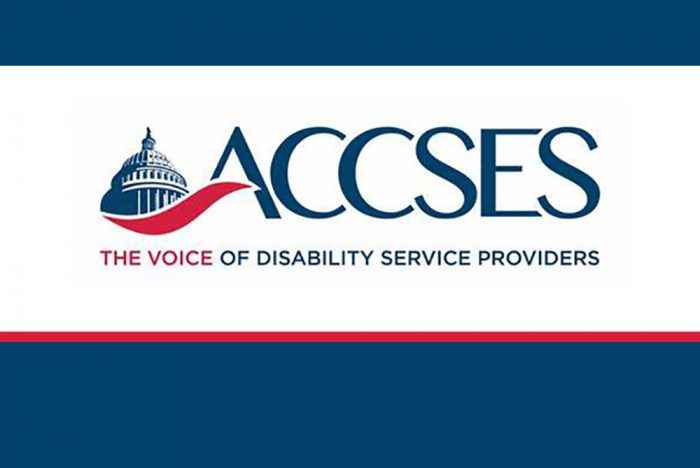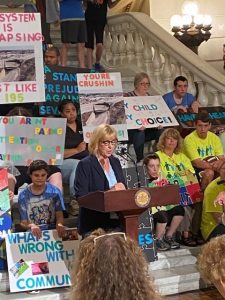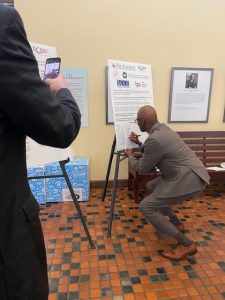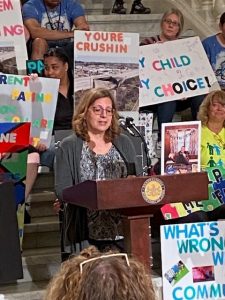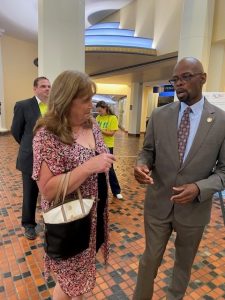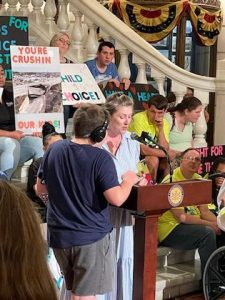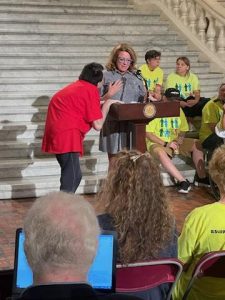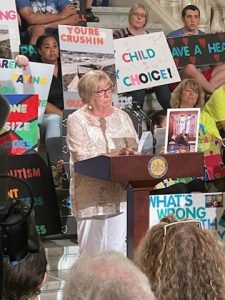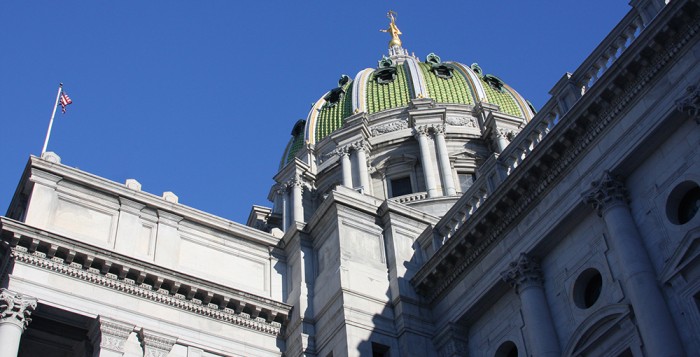Funding
Pa. Is Still Without a Final Budget. What Does the Impasse Mean for State, County Programs? — RCPA President/CEO Richard Edley Quoted
Legislators Must Restore Funding to Help Families Caring for People With Autism and Disabilities | Opinion by Nancy Murray of RCPA Member Achieva (Paywalled)
ACCSES Action Alert: Respond to CMS’s Notice of Proposed Rulemaking By Midnight July 3
‘The Collapse is Here’: Individuals with ID/A, Families, & Providers Rally in Capitol for Increased Funding
Individuals with intellectual disabilities and autism (ID/A), their families, and ID/A service providers held a rally on June 28 at the state Capitol to urge lawmakers to increase funding for services and support in the 2023/24 budget. Providers told those assembled in the Capitol rotunda that nearly 60,000 Pennsylvanians are at risk because there are not enough direct support professionals (DSPs) to care for them. Advocates pressed lawmakers to restore the $170 million in funding to invest into fee schedule rates to support DSPs and services.
“Across the state, we are seeing that there is insufficient staff to meet needs or no staff at all,” said Richard S. Edley, PhD, Rehabilitation & Community Providers Association president and CEO. “DSPs are overworked and depleted and have compromised their own health to serve individuals with ID/A. Program closures have eliminated essential services and also affected the health of individuals served. Underfunding a system where individuals and families are already waiting for or losing needed services simply compounds a dire situation. We need to come together to help those in need.”
View news clips and photos of those who advocated at this event for ID/A services funding below.
WENY (Lilly Broadcasting)
VIDEO: “The Collapse Is Here” Intellectual Disability and Autism Care Providers Issue Dire Warning to Pa. Lawmakers
Penn Watch (Featuring RCPA President/CEO Richard S. Edley, PhD)
“The Collapse is Here”
Updated Invitation: Join Us at the Capitol on June 28 to Advocate for Preserving ID/A Services
The ID/A Associations are continuing our advocacy for increases to the IDD budget in PA. Join us at the Capitol in Harrisburg on Wednesday, June 28 to advocate for the preservation of desperately needed services for individuals with Intellectual Disability and Autism. People with disabilities, families, and advocates will be going to legislative offices in Harrisburg, dropping off information, and asking legislators to increase funding for ID/A services.
We will begin by meeting at the East Wing entrance to the capitol at 11:00 am. From there, we will be distributing handouts for participants to deliver to various offices. Staff from all the associations will be on hand to provide guidance as needed. After visits and a break for lunch, we will gather at 1:00 pm in the rotunda for a press conference, hearing from families who are in need of supports and services for their family member(s).
This effort is imperative, as there is no longer a risk of the system collapsing. The intellectual disability system is collapsing. Thousands of people are losing services, and more will soon be added to that list due to a proposed budget reduction and a lack of investment into rates. Inaction by the legislature will only further exacerbate this crisis and leave thousands more individuals and families without services. If nothing is done to address the inadequate rates now, more families in Pennsylvania will suffer.
The budget negotiations are ongoing, and we need YOU and everyone you know to help our advocacy efforts. As the Governor and legislature continue to negotiate funding for the budget, they need to hear from constituents about the importance of the ID/A system and why investing into the rates is the only way to ensure that providers can pay their staff higher wages and attract new staff to serve more people.
If you would prefer to visit your local legislative offices, we can provide the handouts to you via email to distribute to your legislators.
Contact Carol Ferenz or Cathy Barrick to register or if you have any questions.
Mental Health Safety Net Services Funding: A FY 2023/24 Budget Imperative Letter
The sustained funding of community-based mental health services, such as community residential programs, family-based support, outpatient care, and crisis intervention, are critical to the wellbeing of our constituents and our communities. Funding levels for county mental health services have direct impacts on whether these important community and family supports will be available. Yet for too many years, state funding for mental health services has lagged far behind its needs. Counties find themselves advocating for the prevention of funds being cut instead of achieving the increases that are needed to catch up from years of underfunding.
This week’s letter, sent on behalf of the Coalition for the Mental Health Safety Net, stands as an open call to the PA General Assembly and stakeholders. For Pennsylvanians with a mental illness, the impact of the county funding shortfalls is already evident. The effects include: shortages of key mental health professionals; chronic underpayment of mental health providers; reductions/closures in mental health residential programs and supportive services, including employment and psychiatric rehabilitation services; uneven crisis response services; outpatient program closures; and the continuing criminalization of mental illness. Across the Commonwealth, there is no consistent level of mental health services available, and access to critical services largely depends on which county a patient lives in.
The Coalition is open to all new partners who wish to join our mission of advocacy for this 2023/24 initiative, as the time to act and engage with your representative is now. The Coalition will also be developing an advocacy toolkit for members to come together to sustain the safety net and serve those who need it most. The reality is that the demand for service far outweighs capacity and rate structures to serve this population.
If you have additional questions or would like to join the Mental Health Safety Net Coalition, please contact RCPA Policy Director Jim Sharp.
Pennsylvania is Failing Disabled Individuals & Their Families | Opinion by Arc of PA’s Sherri Landis
We Qualify for Assistance. Why Don’t We Get It? | Op-Ed By Kym Lambert
ID/A Associations Respond to HB 611’s Proposed Decrease to Waiver Funding
Statewide associations have been united in advocating for an increase of $430 million in state funds to the home and community-based waiver rates to offset the impact of actual inflation not included in these rates. This was in addition to the budget proposed by the Governor in March of this year. This $430 million in state funding would be matched by an additional $470 million in federal funding to the State.
HB 611 decreased the Governor’s proposal from March by $170 million for the Community Waiver line item, a decrease that represents the growing loss of services within our system. This decrease was a result of underutilization due to the lack of staffing, as individuals struggled to find providers available to support them in their communities.
The ID/A associations joined together to send a message to the General Assembly in a letter expressing our concerns for the viability of ID/A services in PA. Please share this letter with your legislators to ensure adequate funding for ID/A services.










